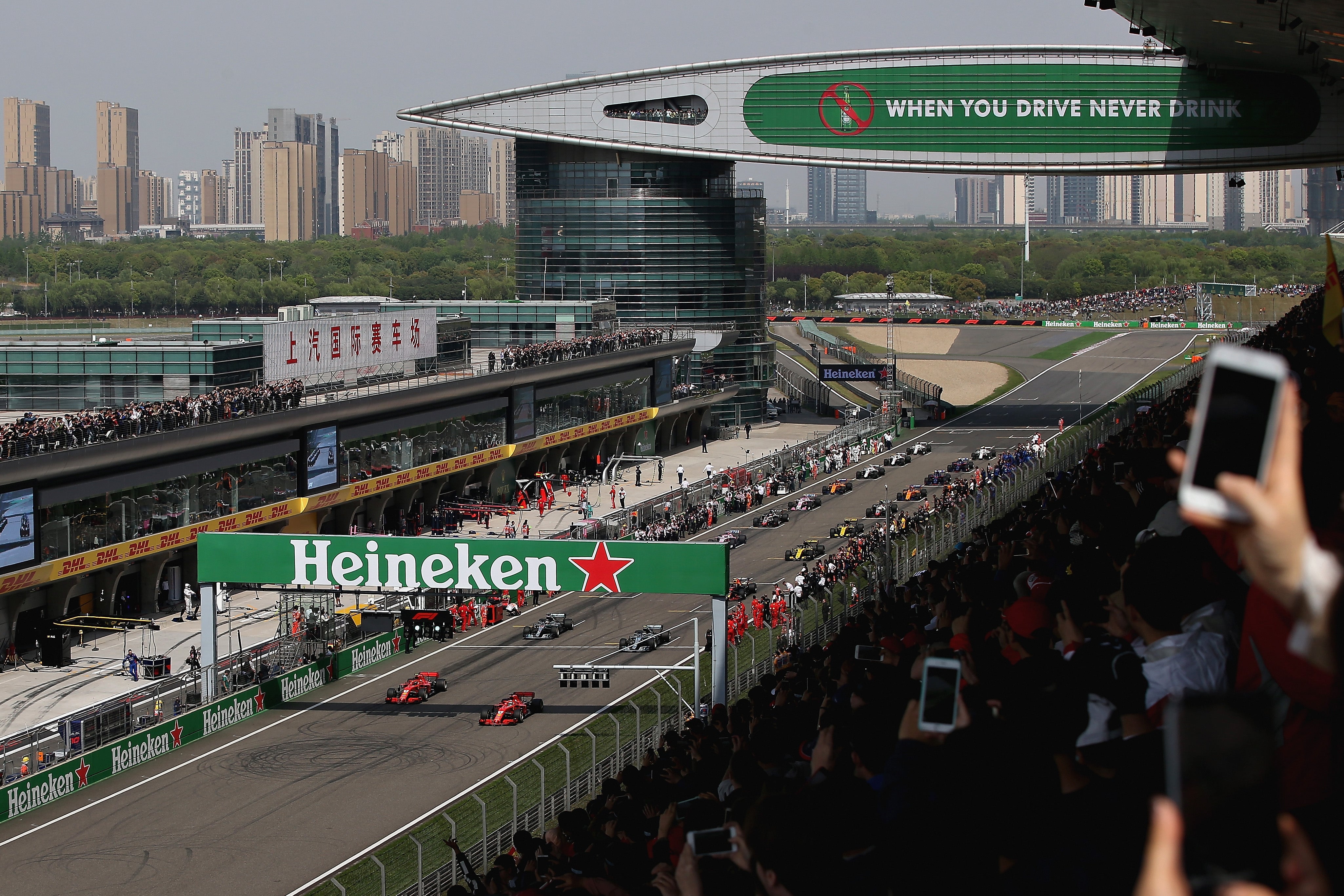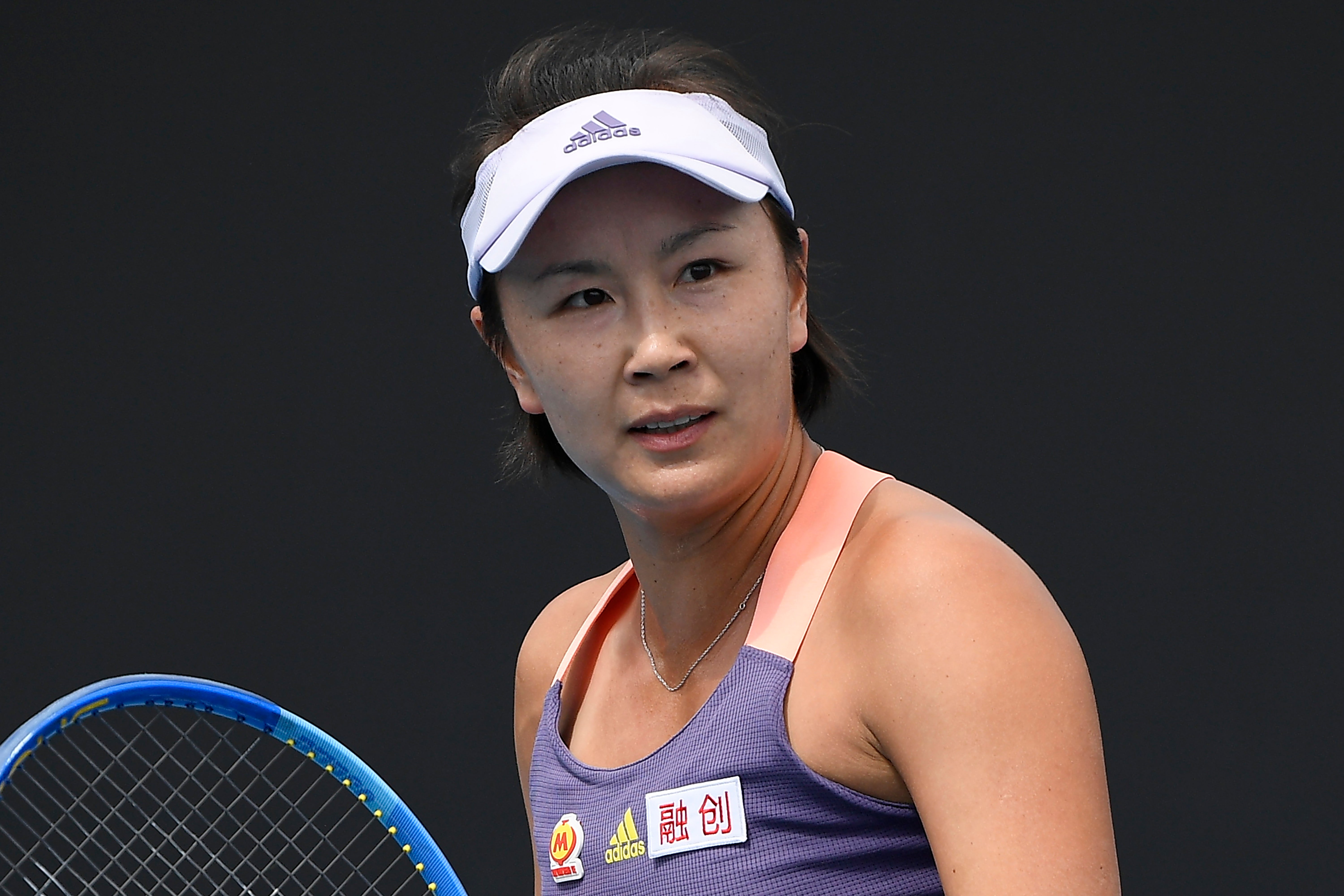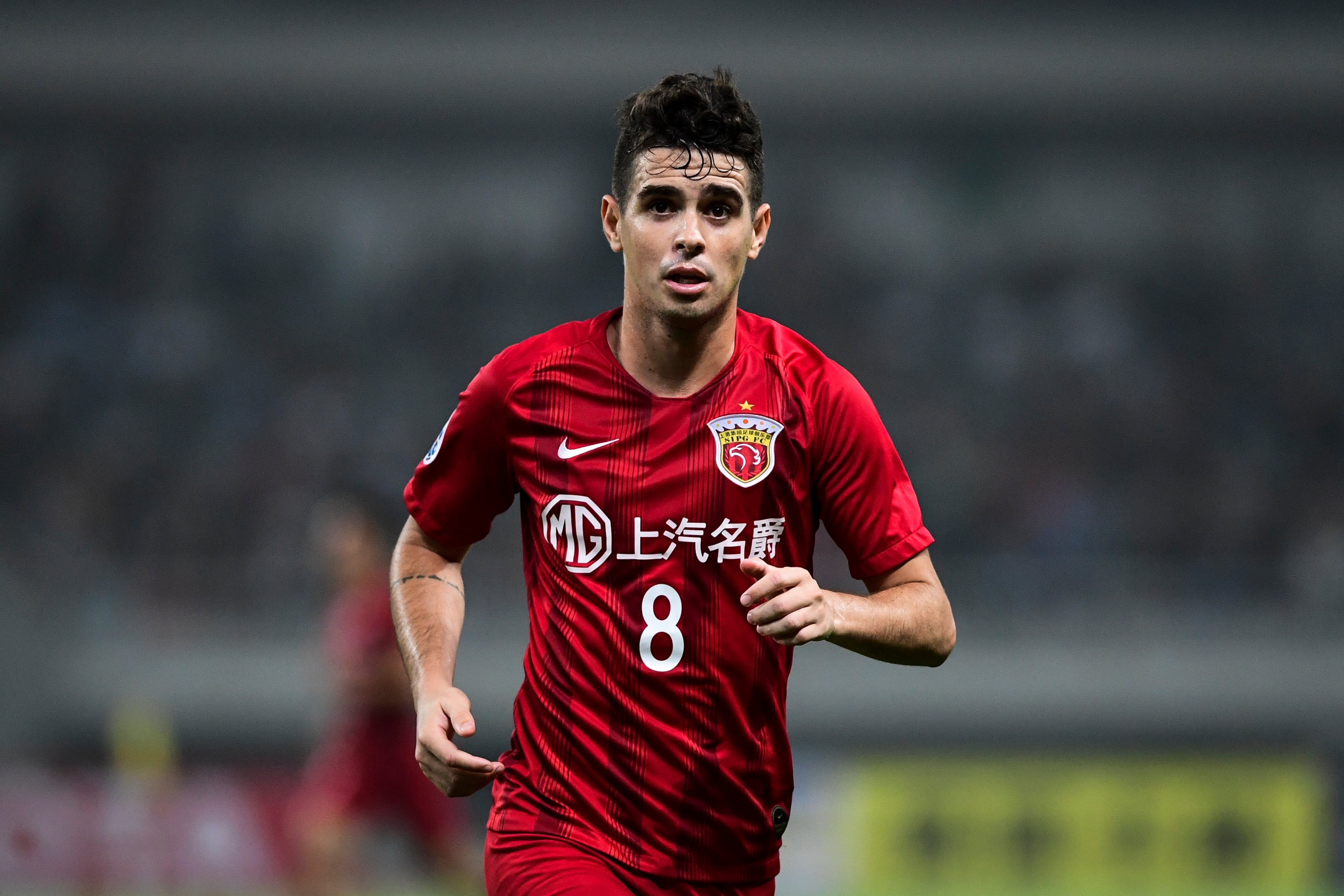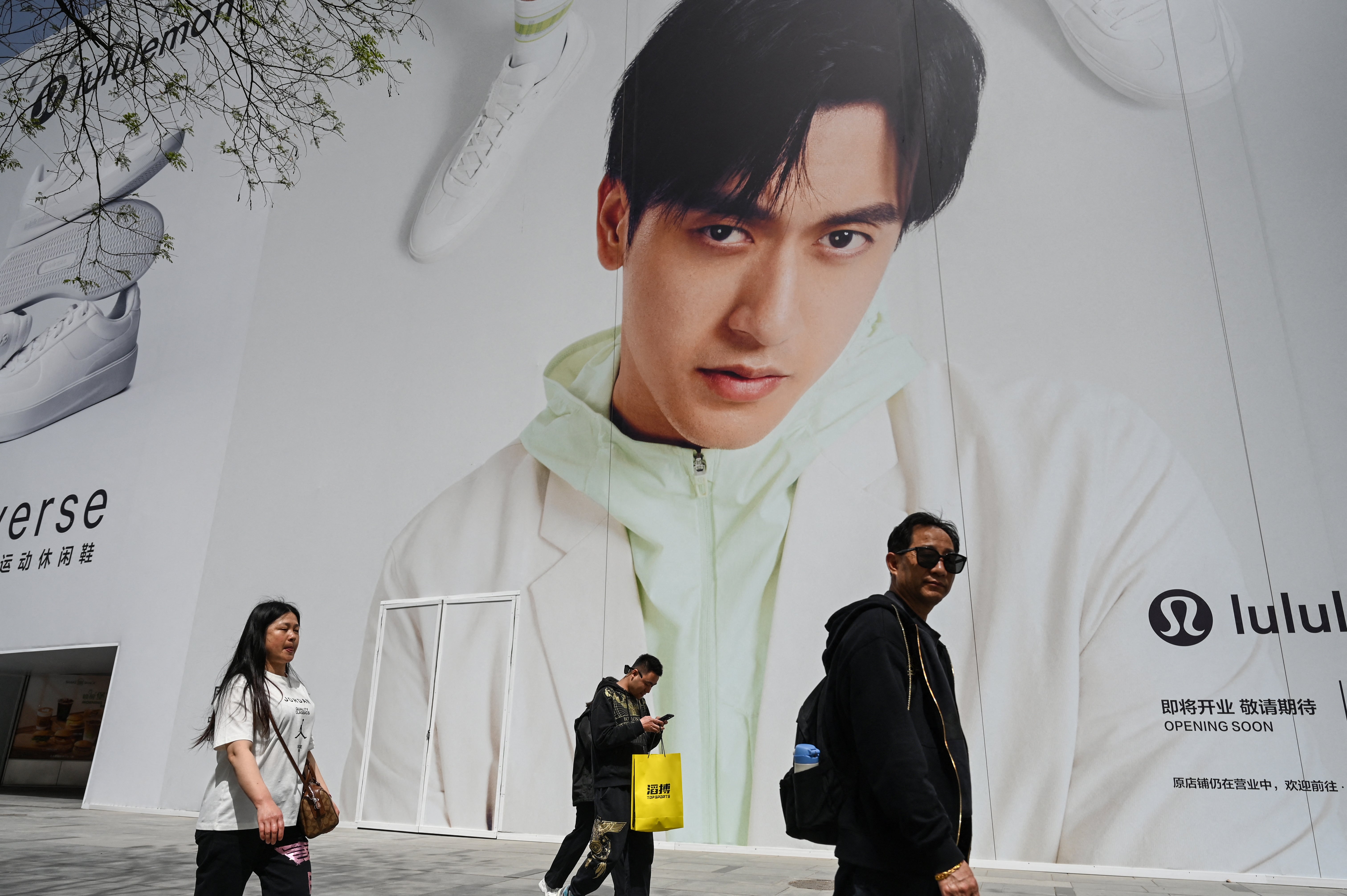What F1 tells us about President Xi Jinping’s plans for China to become a sporting superpower
As Formula One returns to China after a five-year absence, Kieran Jackson examines why it has become so important for President Xi Jinping to see the country re-establish itself in a sporting arena which is dominated by Saudi Arabia and its Middle Eastern neighbours


A lot has happened since Formula One last visited China. Back in April 2019, the sport was celebrating its 1,000th race as Lewis Hamilton won for a sixth time at the Shanghai International Circuit at the start of a season that would see him win a sixth world championship. Mercedes’s Valtteri Bottas and Ferrari’s Sebastian Vettel were the other drivers on the podium.
Yet such is the cycle of competitive sport, the beat moves on. Hamilton has not won in over two years and will join Ferrari next year, Bottas left Mercedes in 2021 and is now a backmarker with Sauber, while four-time world champion Vettel retired 18 months ago. Now, Max Verstappen is the man at the front, in an era of utter Red Bull dominance. They will be the unequivocal favourites again this weekend, though Ferrari will fancy their chances after a strong start to the 2024 season.
But in China itself – a country with a billion-plus population which, before now, has had no national source to root for in motorsport’s premier series – the last five years have represented a topsy-turvy period for sport in the country. The Covid pandemic, triggered by a virus first identified in Wuhan in the east, saw a strict lockdown and national uprisings. Such was China’s hard-nosed attitude to containing the virus, the Chinese Grand Prix has been the last of the pre-Covid races to return, following four straight years of cancellations.
Nevertheless, sport matters to China. President Xi Jinping has made no secret of that, keen to use the cultural impact of sporting events and success as a means of soft power political exertion. Yet unlike unobstructed mega-money expenditure on sport in Saudi Arabia, in both its domestic competitions and hosting prestigious events, China has had a trickier half-decade in its role as a sporting power.
The disappearance of tennis player Peng Shuai a matter of months before the 2022 Winter Olympics cast an unforgiving spotlight on Chinese affairs. Former world No 1 doubles player Peng had accused retired Chinese vice-premier Zhang Gaoli of sexual assault on Weibo, one of China’s biggest social media platforms, before the post quickly vanished.
For months, her whereabouts were unknown. The head of women’s tennis, Steve Simon, opted to suspend all WTA tournaments in the country and Peng’s sudden re-emergence at the Beijing Games in February 2022 did not quell critics. By April 2023 however, tennis tournaments in China were back on the schedule. The WTA had relented and sporting bodies were satisfied with Peng’s safety.
Yet it is not the first example of a sporting affair in China going haywire. The expansion of the Saudi Pro League is not the first Asian domestic football competition to invest rapidly in its teams and star players; 10 years ago, China was luring the likes of Chelsea playmaker Oscar, Brazil international Hulk and a host of other foreign stars to the Chinese Super League. Gareth Bale was close to a move, too, before it fell through at the final hurdle.
But they spent beyond their means. The country’s football association quickly enforced rules on the number of foreign players allowed on the pitch and in squads, concerned about the national team’s lack of performance in World Cup qualifiers (China have not qualified for a World Cup since 2002). Attendances fell and were then non-existent during Covid. The project failed on both counts: the league is no longer tempting for foreign players – and the national team continues to struggle.


So, where does F1 fit into all of this? The automatic assumption may well be that, given the absence of the Chinese GP, the sport’s popularity has slumped in recent times. However, that is not the case.
While that 1,000th race in 2019 only filled 40 per cent of the Shanghai circuit’s 200,000-strong capacity, a full house is expected over three days of competitive action this weekend. F1 is on free-to-air TV in China, increasing its accessibility for the general public, and lies behind only basketball and football in the country’s most-watched sports.
For F1, placing focus on China is a no-brainer. The country is the largest car market in the world and despite other races dropping off the schedule due to inactivity, F1 chief Stefano Domenicali has valued China’s partnership and there are even murmurs of a second race, in Guangzhou, being on the cards in the not-so-distant future.

Domenicali described the prospect of two races a year in China as “100 per cent realistic” two years ago. Fascinatingly, the spectacular new development at Qiddiya in Saudi Arabia points to another Asian powerhouse which wants two invites to the party per year.
The other big factor is Zhou Guanyu: China’s first-ever F1 driver. Now in his third year on the grid, the significance of a home hero to root for cannot be understated in the ethos of Chinese patriotism. While his fortunes in F1 have been modest so far – so much so that Zhou’s future at Sauber, with Audi’s ownership of the team looming in 2026, is far from guaranteed – his star billing is unavoidable. This weekend, a documentary film focused on Zhou airs in cinemas up and down the country. It is called The First One.
Much like the United States, F1’s owner Liberty Media sees China as a vital market. This year’s inclusion of a hyper-active sprint weekend – despite inconvenient timezones for core fans in Europe – is a clear indicator of that. Whether F1 will continue on an upward curve in China, only time will tell. It may well be dependent on Zhou’s fortunes, as well as the spectacle the 14-turn Shanghai circuit brings. A contract beyond its current 2025 length does seem like a near certainty.
In holistic sporting terms, though, up against continental powerhouses like Saudi and its Middle Eastern neighbours, China has some catching up to do after five years spent watching on the sidelines.






Join our commenting forum
Join thought-provoking conversations, follow other Independent readers and see their replies
Comments